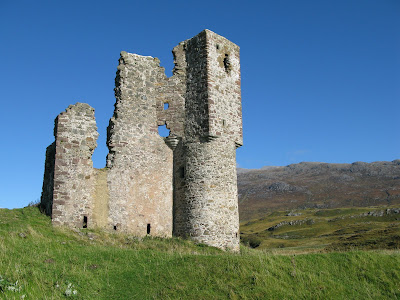Evangelicals ought to be greener than the Greens
Guest post by Mick Pope
Evangelicals should be at the forefront of creation care, regardless of the issue. The Bible is far greener than the Greens can ever be precisely because we don't "hate humanity" (as the Greens are sometimes accused of doing) but should have a proper biblical anthropology in which humanity is made by God from the good dirt and called by God to the noblest of tasks. However, one of the problems with some strands of Evangelicalism at various points of history is that it hasn't taken biblical anthropology seriously enough. Because we belong with the dust from which we were made and will be bodily resurrected, matter matters, including matter that isn't human.
Genesis 1 makes it clear that the Earth is the divine temple and that humans are the idols/images in that temple (interestingly, the word used for "image" in the ancient Greek translation of Genesis 1.26-27 is the same word elsewhere used for pagan idols), representing God to the rest of creation. This rules out any negative views towards the dominion mandate, since it is in God's image that we are to rule.
Psalm 104 is oft neglected and makes a couple of things clear. Firstly, God cares for creatures that (at the time) lay outside of the human economy, indeed for creatures like lions that were often harmful to the human economy, because he took delight in them for their own sake. It is a Psalm in praise of God's own creative wisdom. Notice too how the Psalmist places human economic activity alongside that of his care of the rest of creation. It is a small step to see that if God cares for and tends the wild places, we have no right to interfere with that, and as we carry out dominion in his name we should be also caring for wilderness, not to our own detriment but not to its neglect either.
The third important passage is Romans 8:19-25, which shows how intimately our future and that of the non-human creation are tied together. Creation groans for its own liberation as it has suffered under human misrule because of our idolatry. Note a solid biblical critique of materialism and paganism - we can't afford to leave creation care to atheists or pantheistic Greens since it is our calling. Still, when those groups take caring for creation more seriously than us they shame us. Note too that if creation waits for liberation we don't "save the Earth" but we do act in hope for the future. Just as when we seek to be more holy we don't save ourselves but live in hope of our final sanctification.
So caring for creation matters for Evangelicals.
What about climate change? Is it disingenuous for Christian organisations like Ethos to support the mainstream scientific view without giving equal time to those who are sceptical? As a meteorologist and a PhD who has followed the debate I'd say the science is pretty sound, and that we at Ethos are following the understanding laid down by one hundred and fifty years of direct observation of temperatures, at least a thousand years of proxy data from various independent sources, the best models of the day that can only reproduce the twentieth century trends with greenhouse gases included in the model, and a whole slew of research based on various observations of temperature extremes, changes in rainfall patterns, melting glaciers, spreading tropical diseases and so on.
Addressing climate change is part of a much larger project. Evangelicalism has much to repent of (in my opinion) and has and continues to miss its mission of creation care and opportunities to live out the gospel.
Dr Mick Pope is a meteorologist and coordinator of Ethos Environment. An earlier version of this post appeared as a comment on the Ethos site.








